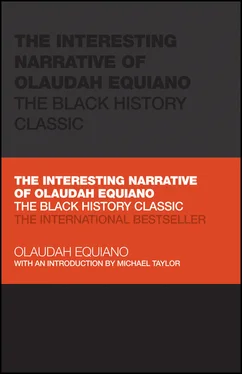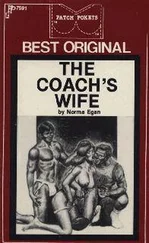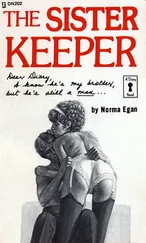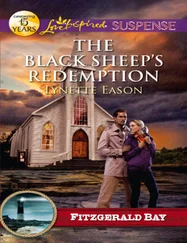Olaudah Equiano - The Interesting Narrative of Olaudah Equiano
Здесь есть возможность читать онлайн «Olaudah Equiano - The Interesting Narrative of Olaudah Equiano» — ознакомительный отрывок электронной книги совершенно бесплатно, а после прочтения отрывка купить полную версию. В некоторых случаях можно слушать аудио, скачать через торрент в формате fb2 и присутствует краткое содержание. Жанр: unrecognised, на английском языке. Описание произведения, (предисловие) а так же отзывы посетителей доступны на портале библиотеки ЛибКат.
- Название:The Interesting Narrative of Olaudah Equiano
- Автор:
- Жанр:
- Год:неизвестен
- ISBN:нет данных
- Рейтинг книги:3 / 5. Голосов: 1
-
Избранное:Добавить в избранное
- Отзывы:
-
Ваша оценка:
- 60
- 1
- 2
- 3
- 4
- 5
The Interesting Narrative of Olaudah Equiano: краткое содержание, описание и аннотация
Предлагаем к чтению аннотацию, описание, краткое содержание или предисловие (зависит от того, что написал сам автор книги «The Interesting Narrative of Olaudah Equiano»). Если вы не нашли необходимую информацию о книге — напишите в комментариях, мы постараемся отыскать её.
The Interesting Narrative of Olaudah Equiano An insightful Introduction from Atlantic slave trade expert Michael Taylor sheds light on Equiano’s life, including his spiritual conversion, his wide travels, and the impact of his writing on the eventual abolition of slavery.
The Interesting Narrative of Olaudah Equiano — читать онлайн ознакомительный отрывок
Ниже представлен текст книги, разбитый по страницам. Система сохранения места последней прочитанной страницы, позволяет с удобством читать онлайн бесплатно книгу «The Interesting Narrative of Olaudah Equiano», без необходимости каждый раз заново искать на чём Вы остановились. Поставьте закладку, и сможете в любой момент перейти на страницу, на которой закончили чтение.
Интервал:
Закладка:
When Spanish and Portuguese merchant-adventurers annexed swathes of the Americas in the sixteenth century, they found that white colonists were unwilling to undertake the back-breaking work needed to cultivate tropical crops. Enslaved African labour became the grotesque lifeblood of the New World economy. By the 1750s, with the French and the British having built their own slave empires, some 50,000 Africans were being enslaved and trafficked across the Atlantic every year.
It was Equiano's misfortune that he was born in the mid-1740s in what was then the kingdom of Benin, a prime hunting ground for European slave traders. 1At the age of 11, a rival nation kidnapped Equiano before selling him to British merchants for the price of 172 ‘little white shells’. When this was paid, he endured ‘six or seven months’ of captivity before arriving at the coast. There he saw the sea for the first time, and a slave ship anchored and awaiting its cargo. Equiano records in the Narrative that these scenes ‘filled me with astonishment, which was soon converted into terror when I was carried on board … I was now persuaded that I had gotten into a world of bad spirits, and that they were going to kill me’. It is also the first time that Equiano has seen Europeans, and even their appearance alarms him.
Few people have described the horrors of the Middle Passage – that is, the ocean voyage from the African coast to the American colonies – with as much colour and clarity as Equiano. ‘When I looked round the ship and saw a large furnace of copper boiling’, he recounts, ‘and a multitude of black people of every description chained together, every one of their countenances expressing dejection and sorrow, I no longer doubted of my fate’. After weeks on the ocean in the sultry sailing season, with the enslaved crammed every which way into the bowels of the ship, ‘the air soon became unfit for respiration, from a variety of loathsome smells, and brought on a sickness among the slaves, of which many died, thus falling victim to the improvident avarice … of their purchasers’. And there were other indignities on such voyages: Equiano would later witness sailors ‘gratify[ing] their brutal passions with females not yet ten years old’.
Unloaded but apparently ‘unsaleable’ in Barbados, Equiano's captors took him to Virginia, where he witnessed plantation slavery for the first time. Weeding plants and gathering stones, loneliness crippled him: he shared no language with the other enslaved Africans, let alone the colonists. Even indoors, where enslaved people could expect a less gruesome life, he was shocked at how black women were clapped in iron muzzles while cooking dinner for the planters. Here, Equiano was called Jacob; during the Middle Passage, he had been called Michael. Yet when he was purchased by the British naval officer Michael Henry Pascal, and bundled onto a vessel laden with tobacco bound for England, Equiano received yet another name. Gustav Vasa was the sixteenth-century king of Sweden who led his nation to independence from Denmark and, following the success of a London play based on his life, the Swedish monarch had acquired a cult following in Britain. Accordingly, Pascal renamed Equiano in honour of Vasa (misspelling the original name to make him ‘Gustavas Vassa’). It took time for Equiano to assent: ‘When I refused to answer my new name’, he recalled, ‘which at first I did, it gained me many a cuff’.
WITNESS OF HISTORY
In the years that followed, Equiano's story shadows the major events of British history. Upon the outbreak of the Seven Years War, he hunts French ships in the English Channel. He docks at Portsmouth during the court-martial of Admiral Byng, whom the authorities famously executed for failing to defend Minorca from the French. Equiano's ship then ferries the Duke of Cumberland – the Butcher of Culloden – from the Netherlands to London, and in 1758 he and his master Michael Pascal convey General James Wolfe to death and glory in French Canada. Soon afterwards, Equiano sees the British fleet at Gibraltar capture the first fighting Temeraire , the third of which Turner would paint so brilliantly in the 1830s. During all of this, Equiano found the time to convert to Christianity, receiving his baptism at St Margaret's Church in the shadow of Westminster Abbey.
Even after the turmoil of the first truly global war, which ended with the British making enormous gains in Canada and India, the young Equiano continued to collide with the actors and places of the age. He claims to have heard George Whitefield, the Methodist who roused American Christians during the Great Awakening, preach at Philadelphia, although this probably happened at Savannah. Equiano also did business on St Eustatius, the tiny Dutch island in the Caribbean which would prove so pivotal in the American Revolutionary War. There, the riches of its warehouses so distracted the plundering British admiral George Rodney that he could not prevent the French navy from surrounding the British forces so decisively at Yorktown.
BUSINESS VENTURES AND FREEDOM
Despite what Equiano represents as faithful service to Pascal, they did not part on good terms. Equiano had won considerable prize money by boxing against other boys on the decks of ships, but when Pascal sold Equiano to another British officer in Gravesend, he refused to pay up. Indeed, when they chanced upon each other in later years, Pascal told Equiano that he would not have yielded a penny even if Equiano had won £10,000 by fighting.
Upon being sold once more – this time to the merchant Robert King, a Philadelphian who traded in the West Indies – Equiano spied a chance for redemption and freedom. Earning the trust of King and his shipmates, with whom he darted about the Caribbean on King's business, Equiano began to sell goods and earn money in his own right. By 1765 he had acquired £40, more than £7,000 in today's money, and this was enough to persuade King, however reluctantly, to permit Equiano to purchase his own freedom. Equiano even had £8 spare to buy a sparkling ‘super-fine’ light blue suit ‘to dance in at my freedom’.
What would he do with his newly earned liberty? Equiano does not quite know which path to follow. At first, he returns to what he knows, merchant sailing, and there follows the dramatic shipwreck of the sloop Nancy in the Bahamas, where in his judgment only Providence saved him from drowning or dying of thirst. Taking leave of the Americas, Equiano returns to London and, besides learning to play the French horn, takes up an apprenticeship in hairdressing at Haymarket. This does not suit the restless sailor, who again goes to sea. Now cruising the Mediterranean, he embarks on the mercantile equivalent of the Georgian era's Grand Tour: from Savoyard Nice to Tuscan Livorno – or as the British called it, Leghorn – and then to Ottoman Smyrna on the Aegean coast. Equiano even takes in the grand opera at Naples, where the eruption of Vesuvius in 1769 sprinkles ash on the deck of his ship.
By 1773, Equiano was ready for an altogether more expansive mission, enlisting on HMS Racehorse for an exploratory voyage to the Arctic in search of the elusive north-eastern passage to India. Led by Constantine Phipps – whose descendant, as governor of Jamaica, would do much to hasten the abolition of slavery in that colony – the journey produces one of the first English-language descriptions of polar bears, of which Equiano claims the crew killed nine. Having escaped the drifting ice packs which sundered many a ship beyond Svalbard, Equiano's next adventure takes him to the Mosquito Coast, the Caribbean shoreline which stretches along present-day Nicaragua and Honduras. Perhaps surprisingly, Equiano had gone into business here with a former shipmate in order to establish a slave plantation. Below we consider further the moral ambiguity of this endeavour.
Читать дальшеИнтервал:
Закладка:
Похожие книги на «The Interesting Narrative of Olaudah Equiano»
Представляем Вашему вниманию похожие книги на «The Interesting Narrative of Olaudah Equiano» списком для выбора. Мы отобрали схожую по названию и смыслу литературу в надежде предоставить читателям больше вариантов отыскать новые, интересные, ещё непрочитанные произведения.
Обсуждение, отзывы о книге «The Interesting Narrative of Olaudah Equiano» и просто собственные мнения читателей. Оставьте ваши комментарии, напишите, что Вы думаете о произведении, его смысле или главных героях. Укажите что конкретно понравилось, а что нет, и почему Вы так считаете.











